
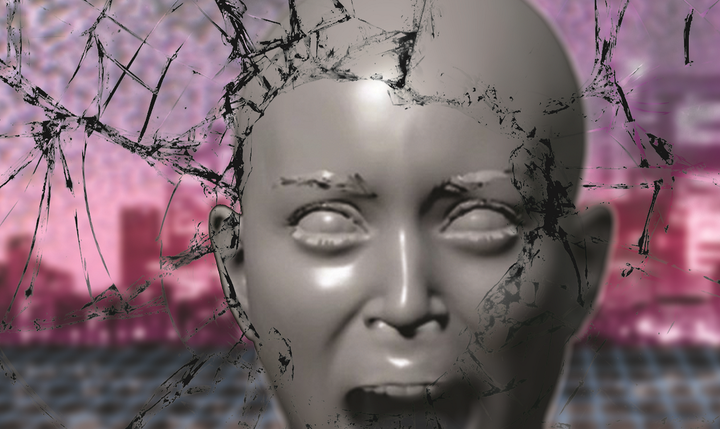
Developments in information and communication technologies (ICT:s) are a major part of technological changes in the world. The development of the internet has meant sweeping changes in social, political and economical life, while still excluding several billion humans. Sweden and the other Nordic nations are some of the fastest digitalising nations in the world.This is a neoliberal attempt to forge a strategy for the future, an attempt to reboot capitalism and reshape society further. Strangely, with this new connectivity the result is a spike in loneliness in the most connected human society in history.
Social Media and Politics
Social media is a central part of ICT:s. These are built by private companies whose core business idea is to automatically harvest data to sell, primarily to ad companies. As someone once said: If a product is free, it's because you are the product. Our data is being gathered and sold at breakneck speed.
Social media is created to draw us in and keep us clicking. Psychological manipulation is utilised to create addiction and interest by "gamification" of social media (giving you ephemeral rewards in the form of buttons or pop-ups) for constant use. The longer we stay on a social media, the more data they are capable of harvesting from us. Being bored can be good for us, and that is now almost lost.
Everyday life is thus transformed. Those moments of reflection over everyday life that you once had on the commuter train coming home from work are disappearing. Look up from your cell phone now and you will see many others ensorcelled in this fashion. Our love lives have been taken over by Tinder and large-scale insecurities are fed to a generation of young women through carefully curated Instagram images of the perfect life, an image that of course doesn't reflect reality, but instead reinforces patriarchal power relations.
.jpg)
While political interest is massively on the rise in Sweden few political groups gain members. Instead, "clicktivism" takes hold. As political action starts to mean to like a page rather than to take action this leads to difficulties in organising democratically from below in groups or movements where we can teach and radicalise people. Simply put, social media gives us the fantasy of being connected but undermines our real strength.
Politics also seems to grow ever more stupid every minute it exists online: racists carefully deploy tactics they know will garner angry reactions and companies try to cash in on outrage culture on both the left and the right. Politicians become popular because they show up at the weddings of boring Instagram stars. Young comrades grow up politically by listening to half-witted YouTubers rather than by learning in political movements.
As more and more of our media consumption moves online, this brings with it changes in how content is produced, and what type of content gets promoted. When you're paid by how many clicks you generate it's suddenly very lucrative to spread conspiracy theories on social media, to rev up racist feelings and rumours, and otherwise cause outrage all in the search of being the most famous dumb person. After all, it pays the bills.
On YouTube this has the unusual effect of creating a whole machinery of content leading to the radicalisation of Nazis being produced. This seemingly strange phenomenon has it's explanation however. The type of videos that would-be Nazis watch are the type of videos that YouTube encourages one to make. Long videos that people are likely to watch, and likely to sit through. When you're being told Western civilisation is ending it might be hard to look away, and when the next video promises a solution to this enormous problem it's easy to let autoplay take you down the rabbit hole. Before you know it you've gone from watching videos about medieval bowcraft to videos of agitators telling you about the great replacement and other Nazi conspiracy theories.
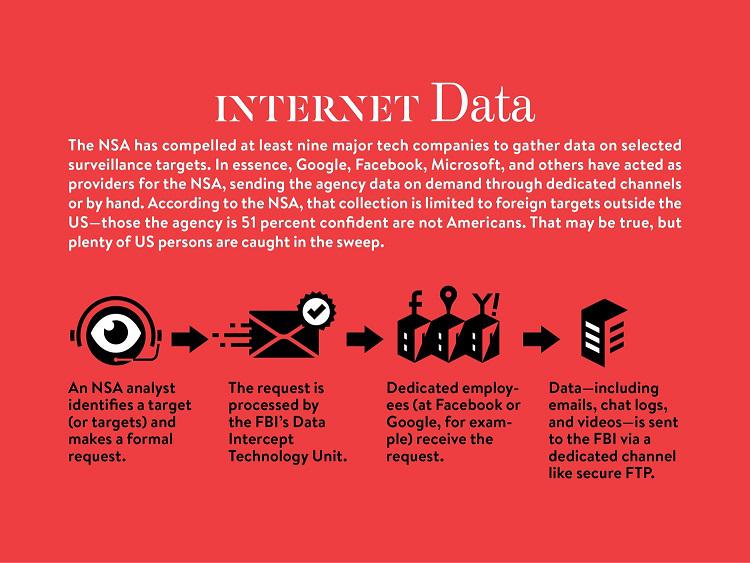
The power social media companies have over groups that are hostile to the state and capitalism is also abhorrent. Facebook routinely shuts down Kurdish liberation groups as well as left radical ones. These companies are one and all happy to have helped states collect information (after all, they were built to collect information!) which is the huge revelation of Edward Snowden. Algorithms can in real time monitor individuals in a way that the Stalinists in the DDR could only wish for. This power is now in the hands of every police force in the world, from China to Sweden.
The other side of this dialectical coin is that social media has shown a capacity for large-scale protest movements to be instantly communicated beyond borders. The Arab Spring is one such example (even though the ideas of a "twitter revolution" are greatly exaggerated. Today, our ComIntern is entirely digital and entirely from below. Social media allows individuals to find what is common in the problems in their lives and connect to one another, without the need for a vanguard party.
The large-scale development of feminism worldwide in flashpoints in Poland, Sweden, Spain and Latin America is undoubtedly influenced by this. We see similar situations with the development of internationalist work in the Kurdish liberation struggle, in diaspora groups from places such as Kashmir, Palestine and Sudan. The instantaneous and global circuit of information breaks down the distinction between "here" and "there", creating the capacity to act in meaningful ways, to create solidarity and movements from below on a global scale. In 1917 it took workers in Italy a week to find out about the Russian revolution (and set about trying to replicate it), today we can follow the same events in real time. This is yet another example of how the power over technology is a burning issue for us, if we could control Facebook or Twitter then we could accomplish quite a few things.
'Arr! - Piracy and Anarchy
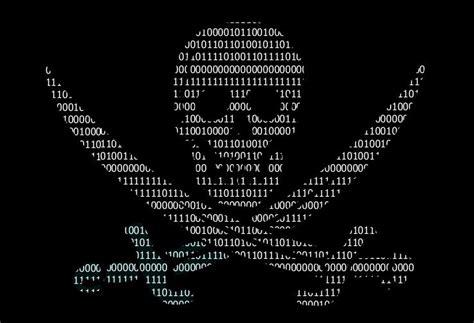
Social media and the internet overall points beyond the state and the commodity form. Piracy is a promise of communism: everyone can enjoy a movie or a song, no matter where or when or whom. Indeed, the differences in public opinion on stealing and copying a TV-show are starkly evident of the fact that we are capable of large-scale sharing economies that run from Game of Thrones season 2 to making research papers free. No matter how hard states try to enforce intellectual property rights, with tragic results such as Aaron Schwartz suicide , they are unable to stop the march of progress.
On a similar note the ten most visited sites online are depressingly all, except one, sites by major corporations. These corporations, prominently Google and Facebook in the West but with Alibaba in China, have become the model companies of our time. If Ford's factories was the vision of one world, now Google is the vision of our current one. Remember that Eric Schmidt, Google's CEO, pronounced that "The Internet is the first thing that humanity has built that humanity doesn't understand, the largest experiment in anarchy that we have ever had". Indeed, our vision of anarchy (that is, communism) is quite alike the internet. Free, open, accessible to all (or rather, it should be), for the common good. The companies that now span the internet and dominate it is the major problem for this "experiment in anarchy". The scholar Christian Fuchs suggests that we should call for a socialisation of Facebook since it is a global good, beyond the reach of any state, a good that should serve humanity rather than it's board members.
Wikipedia stands out among the ten most visited sites and for all it's issues it is an example of participation for the common good. On Wikipedia millions of articles serve people free information every day. A model for fact-checking and discussion is used to facilitate this, and while it has its issues it's a good example of what we desire.
Surveillance and Policing
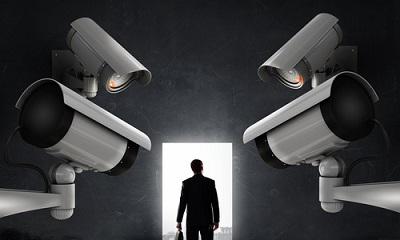
Todays political activists know that technology is being used to surveil and police us. This tracking is done both by technology built for this purpose, but also by our personal gadgets and hardware. We and our actions are more easily tracked because of our digital presence: social media profiles us based on our likes, our phones track us wherever we go and who we communicate with, whilst Google registers everything we search for. This leads to an array of problems, but has also led to different ways of defending against this kind of surveillance. Private companies are not the only ones using digital technologies for tracking and profiling. The police use these tools to track activists and create maps of our networks. Companies and other actors supply the police with information to make policing possible. One example of this we could read about in the news is of four American nazis that were out painting racial slurs and swastikas who got caught because their smartphones automatically connected to their school's wi-fi, leading to them being identified.
If we think about how the police tries to figure out our movement and surveil movement "leaders", they often look to digital networks. Who knows who, who is friends with who on Facebook, who sends out text messages, where do people meet etc. These are all things we have seen being used in police investigations and in trials as proof of connections to the autonomous movement or as evidence of leadership. This means that we need to learn how to avoid leaving tracks that helps the police, or at least minimise them. Most people are unwilling to stop using using Facebook and other social medias because of their part in society today. But mixing it up too much with ones activist life can be a serious security risk. Using encrypted texting programs like "Signal" is one way to communicate without leaving traces to the police. There is a tension between activists that are pushing for higher levels of internet, phone and technology security and the activists that are against it for different reasons. The knowledge of how to protect ourselves, and why this is so important, is overall quite low in the movement.
Another example of how new technologies are used for policing are drones and facial recognition. Drones are increasingly being used by the police to monitor demonstrations and crowds. Drones and video feeds in combination with big data analysis allows for easier tracking of groups and for identification and evidence that could be used against activists in court. Today the only method being widely used to avoid this is the wearing of masks. In the Hong Kong protests during the summer and autumn of 2019 we could see green lasers being heavily used by the activists against cameras and the police in order to avoid facial recognition. Makeup and otherwise changing the look of your face is another tactic that is increasingly being used. Developing new methods to combat facial recognition will be crucial for the future.
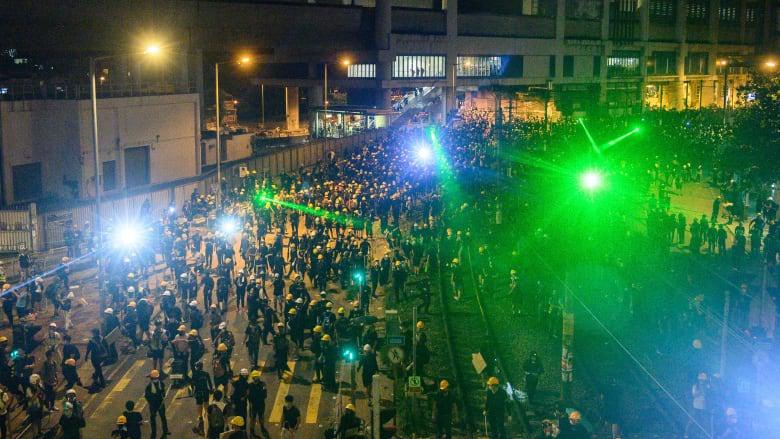
Facial recognition is problematic in its own way. Not only because of why it's being used but because of how it works and the way it has been programmed. The scientific community has criticised it for its accuracy, and that use of the software is discriminating against racialised people. A black person is more likely to be subjected to the technology and at the same time more likely to be misidentified. In the US, where facial recognition on its own is being used as evidence in court, this is very problematic. The cause of these software issues is being pinned down to the lack of diversity among the coders and creators, i.e. bias among white programmers leads to writing racist code. bildförslag
Surveillance and repression doesn't always have to be so explicit to have the desired outcome. Simply the awareness that we're being observed changes our behaviour, often without the subject being aware of it. Like a digital panopticon, knowing that you could be watched, even if in fact you aren't, will cause you to 'stay in line' for fear of reprisals, real or imagined. This can have profound effects on a population, preventing people from learning about alternatives to the mainstream.
Red Mirror